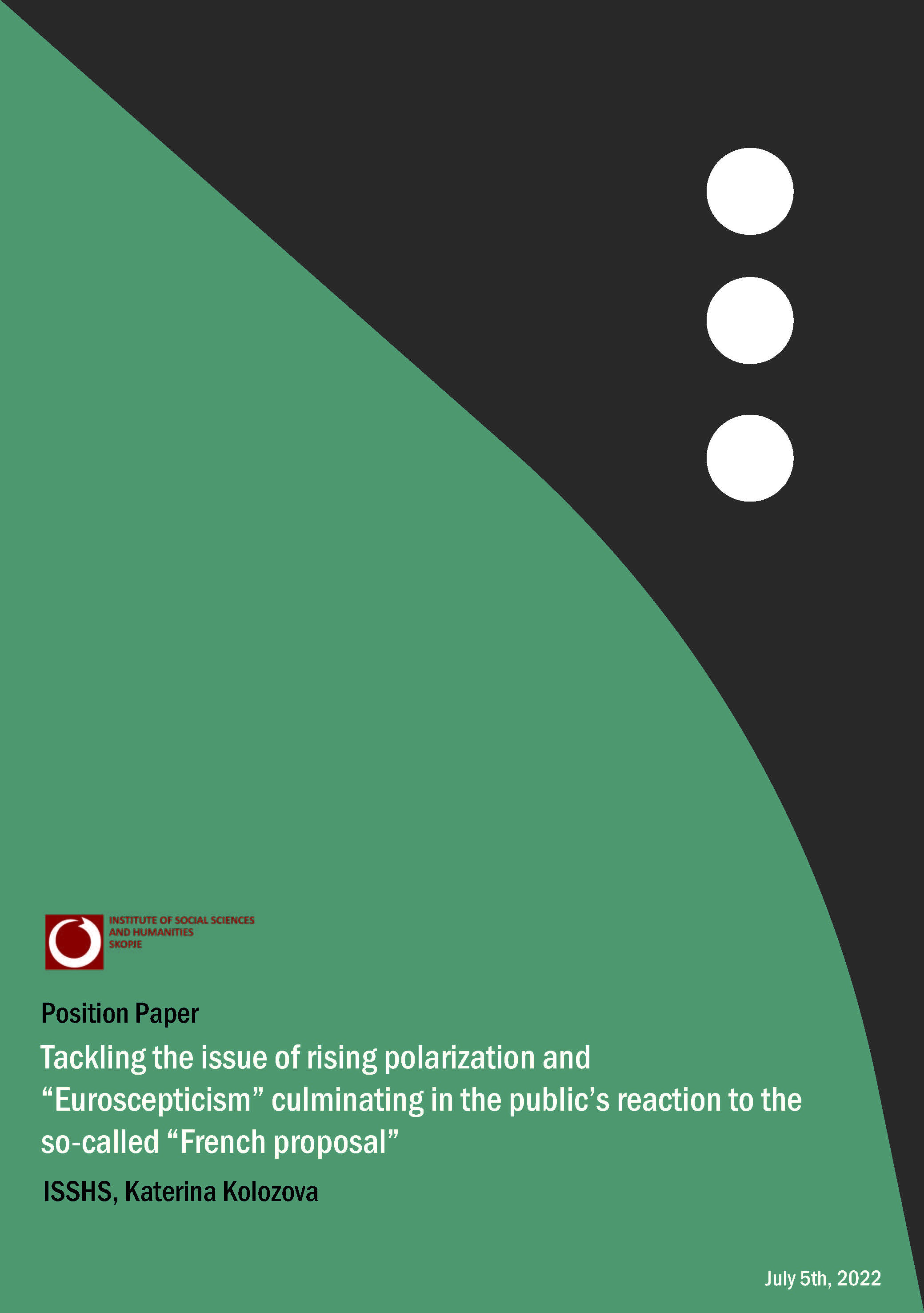Tackling the issue of rising polarization and “Euroscepticism” culminating in the public’s reaction to the so-called “French proposal”
Tackling the issue of rising polarization and “Euroscepticism” culminating in the public’s reaction to the so-called “French proposal”
Author(s): Katerina Kolozova
Subject(s): Politics / Political Sciences, Politics
Published by: Институтот за општествени и хуманистички науки – Скопје
Summary/Abstract: ISSHS has produced several analyses accompanied by recommendations on the possible exit from the enlargement cul-de-sac due to the Bulgarian-Macedonian dispute.We believe the core of our recommendations has been addressed by the present General position and Negotiating framework of the EU Council insofar as it contains no reference whatsoever to history, historiography and identity. Issues of cultural conflict, as we define the core of the dispute (see first recommendation cited below, which contains the premise of the definition), have been relegated to the plane of bilateral conflict resolution and hopefully reconciliation.Cultural policies should be devised to address the cultural conflict at hand and offer resolution in terms of cultural and educational policies across disciplines (literature, arts, history) as any identity narrative is about more than merely “history” (history in identity context is a folkish spontaneous narrative of the past, akin to a myth). Put differently, historiography or pedagogy are not to deliver the solution to the conflict at stake but contemporary educational polices; instead: apply educational and international relations policies that could affirm the connections in history regardless of whether such history is called shared or common – it is key to underscore that these are connections of continuity between the shared past but also hopefully shared future, points of connectivity instead of division (from Precis of a Threefold Analysis, p.1 available at our website under long policy reads, slightly revised)The document remains politically sterile – in the best possible sense of the word – while providing an approach of sensitivity to cultural concerns for which a most appropriate format has been offered, one that emulates a similar agreement of good neighborly relations that of “Prespa.” What is more, the one recommendation we considered farfetched and highly unlikely to be met, has been materialized: the Framework position of the Bulgarian Assembly has been completely sidelined in the “controversial” so-called “French proposal.”Why then this reaction not only of the rightwing parties and one nationalist leftist party (Levica), but also of a part of the presumably pro-European expert civil society? We believe it is a matter of high polarization built by the veto and the bilateral negotiations around it. Europe and Bulgaria are at fault for allowing such a dangerous process to occur, recklessly permitting the buildup of polarization as well as of Euroscepticism even among those once most committed to the EU integration.A speedy process of depolarization, through methods of cultural conflict resolution and reconciliation, should be initiated urgently as the prerequisite for any rational conversation around the bilateral protocols with Bulgaria but also related to the “French document” (as dubbed in the Macedonian public) and for rebuilding trust in the idea of unified Europe and European values. The first step may (and, we argue, should) be for our public to be reminded that we are yet to learn what the European values are as they are more than merely being a geographical and cultural part of the continent: a dialogue of opposing views, conflict resolution and the talent and knowledge of building good neighborly relations by means “truth and reconciliation” (the method of Jacques Derrida) as well as other related model of depolarization and cultural conflict resolution.
- Page Count: 4
- Publication Year: 2022
- Language: English
- Content File-PDF

